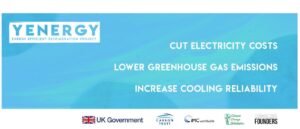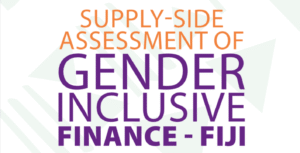Energy Efficient Refrigeration Project Launches with Low Carbon Energy Solutions for Thai F&B Sector

In an exciting joint effort on a national scale between the United Kingdom and Thailand, the Energy
Efficient Refrigeration Project, or known by its project title as “Yenergy” aims to both reduce carbon
energy consumption and boost economic growth, one refrigerator at a time. The “Yen” in “Yenergy”
meaning “cool” in the Thai language, is a quip at the project initiative, aimed primarily at Thailand’s
F&B sector which is seeking vendors along the full spectrum of the industry to replace their old
refrigeration units with newer, energy efficient machines. The project is backed by the ASEAN Low
Carbon Energy Programme; a £15m aid programme of the UK’s Prosperity Programming which will
use the UK’s extensive and proven expertise in green finance and energy efficiency to help the ASEAN
region shift towards low carbon energy. Gender and Inclusion (G&I) is a cross cutting theme
throughout the programme, where gender is mainstreamed across all interventions in order to strive for
an overall ‘empowerment’ level of ambition.
The Yenergy Project is expected to pair vendors with units of energy-saving freezers and refrigerators
manufactured by Sanden Intercool and sold through Climate Change Solutions Co. Ltd (“CCS”), a
company specializing in the areas of Energy Efficiency and Renewable Energy across the Asia Pacific
region. Connecting Founders, an advisory firm that supports women-led businesses in scaling
sustainably and raising capital, will support the program to promote inclusion of women
entrepreneurs in its implementation. Chilling units are most notably, especially in a climate like
Thailand’s, one of the largest energy consumers in the household. Older and less-efficient units cause
significantly heavier impact on both utilities cost and the environment. Sanden Intercool offers a
selection of 6 energy efficient refrigeration models with prices ranging from 6,500 – 41,000 THB.
Applicants pay a 30% down payment and the remaining balance can be repaid through monthly
installments over the course of up to 36 months.
It’s estimated that up to 40% of electrical bills could be saved by switching to energy efficient units and
the projected mitigation of carbon emissions is in the metric tons range over the course of 10 years.
Logistics such as equipment replacement, transport, responsible disposal and insurance will also be
handled by the program.
Businesses will benefit from cutting electricity costs with the added bonus of reducing their carbon
impact on the planet and strengthening their brand value as one that upholds sustainable standards. As
the F&B sector is one the largest consumers of energy and one of the most important contributors to
the Asian economy, a greener solution is also a more economic one. Thailand has the largest F&B
sector in ASEAN by size which contributes to over 20% of the country’s GDP, making it a sector ripe
with impact potential. Despite the industry being considered by many the foundation of the city of
Bangkok, the sector was among the hardest-hit and least-supported during the COVID-19 pandemic.
In an industry that is still navigating the long yet persistent road to recovery, the project aims to provide
long-term solutions that alleviate stress on utilities cost, environmental impact, and shifting consumer
demands for businesses.
Women-owned and small businesses are strongly encouraged to apply. As the food & beverage scene on
a small-medium scale continues to grow, an investment in a cost and energy efficient unit is one that
will yield a pay off both in the short-term and long-term prospects.
The current climate is a critical point for this industry. Many in the F&B sector, specifically in the SME
realm, are struggling to recover from the previous pandemic surges and continue to battle the most
recent and rampant wave yet. Switching to energy efficient solutions during this time could potentially
be a strategic move. Not only does it come with computable cost benefits, there has been a shift in
consumer behavior as an unexpected result from the COVID-19 situation both on a global and local
scale. KBANK Research Center Industry Outlook outlines that local Thai consumers are leaning
towards eco-friendly brands more so than ever. Transitioning to Energy Efficiency not only benefits the
environment but also the brand itself. Consumers are demanding more transparency and visibility,
thus using products that have tangible reductions in energy consumption and expenditure is beneficial
for businesses as well as their consumers.
Thailand being a key player in the ASEAN region has the opportunity to spearhead movement
towards the adoption of low carbon energy. With the help of the consortium of the EY Fund, Carbon
Trust, and IMC Worldwide the Yenergy Project holds hopeful promise for the immensely resilient
Thai F&B industry, leveling out the platform so that any business of any size can contribute to a
greener future and a more sustainable economy.
For more information about applying for the YENERGY Energy Efficient Refrigeration Project: https://www.facebook.com/yenergythailand or yenergy@connectingfounders.com





